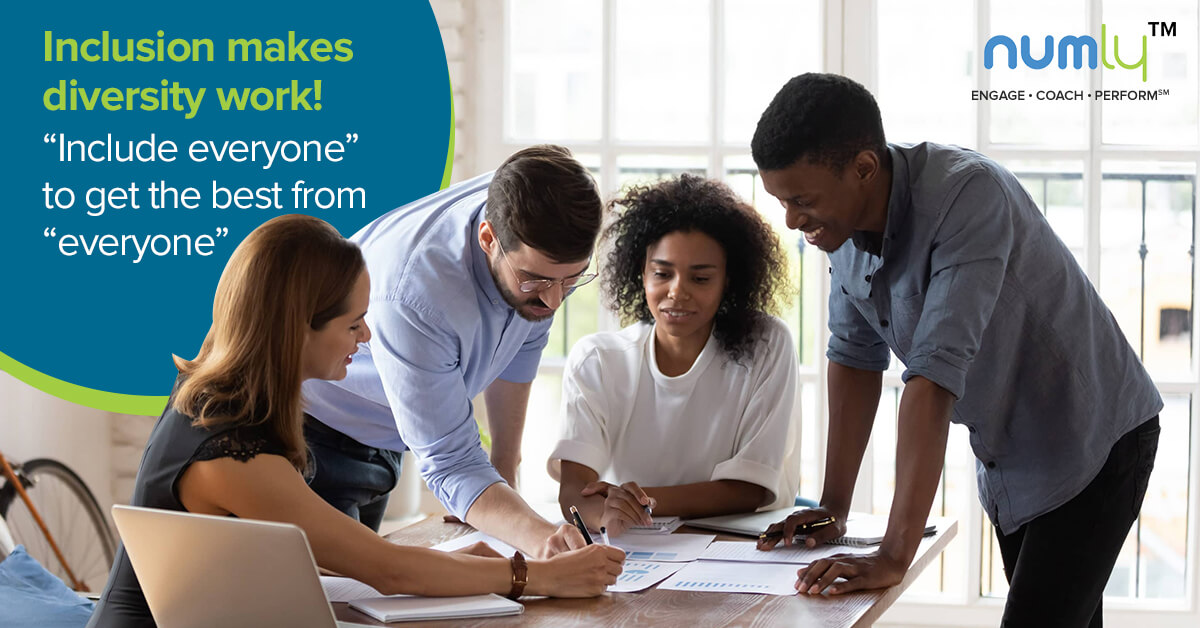Various factors have affected the workforce composition in the current decade. These have made Diversity and Inclusion the top priorities of organizations across the world.
Read: Hybrid Workplaces and their Impact on Diversity, Equity, and Inclusion Initiatives
Globalization of the economies, increase of multinational organizations, and proliferation of technologies have shrunk the world. Migrations for work (and otherwise) have created populations that are a mix of race, culture, and color in all nations. Additionally, an increased presence of women and differently empowered individuals, different sexual identities by choice and birth have enlarged the pool of diversity of every country, which naturally reflects in the workforce and available pool of employees for hiring for every organization. Today, organization leaders are working to bring the best solutions to implement diversity management at workplaces and create equality for their diverse workforce across the nation and globally.
There are three essential aspects organizations leaders need to focus on to communicate and affirm their intentions to Diversity and Inclusion (D&I) at the workplace.
Organization Culture
Cultural change creates a sense of belonging to all employees about bringing their actual selves to the workplace without the fear of discrimination. Organizations must think beyond the HR and employee development functions and put their business leaders and managers at the center when designing the D&I culture for implementation.
Read: Leadership Development and Scaling Your Inclusion Culture for the WFH / Hybrid Workforce
Managers and leaders must be the drivers of change and be held accountable for inclusion. They should communicate their commitment to inclusion through speech and action in every way, building bonds and a sense of community in the diverse teams.
Enabling diversity through hiring without enabling inclusion processes is a story of missed opportunities for the organization. Collaboration and work teams with diverse group employee inclusion can bring greater understanding and empathy to think differently. Everyone can benefit from the experience. Managers can take advantage of peer coaching, which serves as an effective tool to change existing mindsets, to tolerance, and create healthy workplace behaviors. It is essential to incorporate diverse leadership at all senior levels to bring about radical cultural change.
Organizational Policies and Processes
Your intentions are unquestionable when you include best practices of D&I as part of your process and policies.
The very process of incorporating inclusive policies becomes a learning process for organizations.
- Various pointers for implementation and issues which could arise for inclusion become evident to the leaders.
- Once the necessary policies are incorporated, the clarity of communication about zero tolerance to biases becomes evident among employees of the organization and the outside world.
- It also creates greater transparency and visibility, ensuring fairness and equal opportunity for all.
- Process changes help in accelerating the change in organization culture, which may not happen only through employee communication.
Your plan to have a diverse workforce starts with incorporating D&I into every step of the hiring practice and providing support further to onboarding. Organizations including diversity in hiring practices are ‘employers of choice’ in the global marketplace of talent.
All employees like the idea of working in an organization that respects them no matter their origin or cultural difference. The brand value of a D&I practicing organization increases in the hiring market. Attracting critical talent and retaining existing ones becomes easy. Starting right from advertising for talent to shortlisting and interviewing the diversity factor has to be in focus. Checks have to be put in place to see that biases do not eliminate the critical talent from incoming at the early stages of hiring.
During onboarding and assimilation into the talent pool, communicate the culture of diversity throughout the process. Creating support and belonging for the new diverse talent is essential during the onboarding to ensure retention. Create policies supported by an authority to further the same. The hired resource will recognize bias behaviors right away in the initial days, and lack of support will end at risk of attrition.
Organizations prioritizing D&I implementation need to change the internal hiring process to advance diverse talent groups. Women and ethnic minorities who are eligible need to be promoted to senior executive and management roles. Employees align quickly with those similar to them. Having a diverse person on the management team or board serves as a role model for other employees. To the external world, it projects the organization as the one where unbiased growth is possible.
Read: Develop, not just Hire – Leverage Peer Coaching for an Inclusive Culture
Technology-driven Initiatives to Push D&I
Organizations must create employee awareness, empathy, and understanding for the cause of underprivileged and diverse employees’ challenges. Sharing qualitative and quantitative data linked facts that prove inequality and discrimination have led to under-representation can create change in thought. The critical need for equality, diversity, and inclusion should be visible to all to make inclusion voluntary and participative.
Use technology and one-to-one sessions to gather employee feedback. Lean on employee resource groups and acquire data-driven targets for diverse talent representation. Use technology to analyze employee data for attrition and exit interviews to find gaps in D&I implementation. Internal surveys should be technology-enabled to access the actual diversity and sense of belonging for employees in the organization. Measuring diversity is a matter of headcount but factoring in the narrative of feelings of inclusion with the numbers gives the overall picture for organizations.
Leaders must have courageous and crucial conversations with essential critical interventions to deploy D&I in their workplaces. It has been proved that diverse teams are more productive and have greater cognitive and creative skills. The very fact that they come from diverse cultures, makes them better armed with multiple perspectives and life learnings that are not found in a heterogeneous team. It’s time to present your organization as a champion of equality and futuristic thinking.
Start focusing on the above three critical factors to successfully bring diversity and inclusion to your workspace and your organization today!
Check out Numly’s DEIB Peer Coaching Programs for Hybrid Workforce

